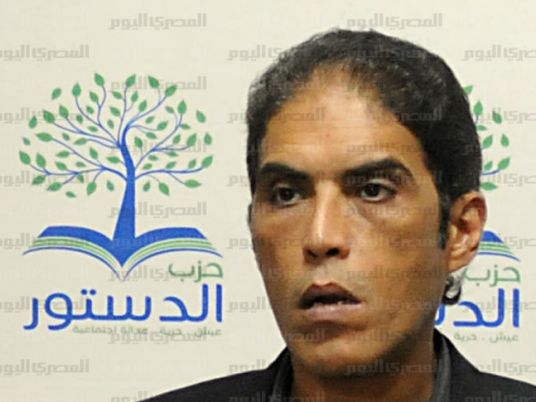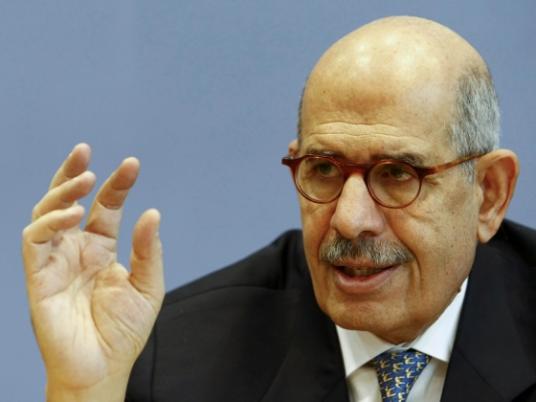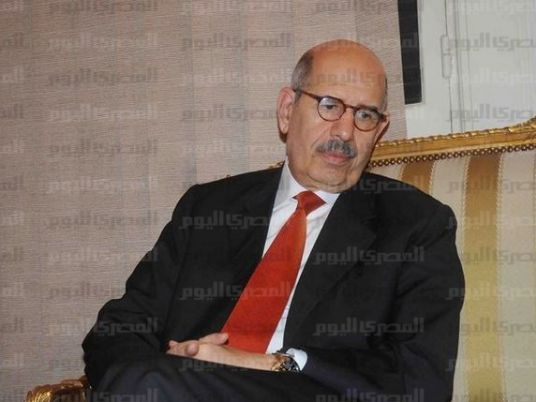Reformist Mohamed ElBaradei announced on Wednesday he would run in Egypt's presidential election this year and called for a completely new constitution instead of temporary amendments.
It was the first time that ElBaradei, awarded the Nobel Peace Prize in 2005, had explicitly announced he would be a candidate for president after President Hosni Mubarak was overthrown by a popular uprising last month.
Post-Mubarak presidential and parliamentary elections are being watched for signs of how democratic the country's political life will be after three decades of state oppression which created a toothless opposition and stifled political activity, political analysts say.
"When the door of presidential nominations opens, I intend to nominate myself," ElBaradei said on his first live talk show on the privately-owned ONTV channel.
He also said he would oppose constitutional amendments being put to a referendum on March 19, calling for a new constitution instead.
"I will not vote for these constitutional amendments. I will vote against these amendments."
A leading figure in the reform movement who has been backed by youth groups since his return to Egypt in 2010, ElBaradei was preceded by veteran diplomat and long-time friend Amr Moussa, who was the first prominent figure to declare he would run for president.
ElBaradei, 68, the former head of the International Atomic Energy Agency, said a brief but moving encounter with a man from a slum area years ago who had to walk some distance to fetch clean water inspired him to pursue ways to serve his country.
"If I am elected, and God allows me to be elected, my first press conference will be in a slum area," ElBaradei said.
"I will apologise on behalf of all Egyptians to the 40 percent of the population living below the poverty line for the neglect they have seen, and for not having the homes and the lives they deserve."
First live broadcast
The interview was ElBaradei's first live broadcast since a popular uprising began in Egypt on 25 January and was the first salvo in his presidential campaign.
"I am Egyptian, I grew up in Egypt, I began work at the Foreign Ministry and have worked abroad and have experience in many issues. I try to transfer this experience to my country which I would loathe to see lagging behind," he said.
The Supreme Council of the Armed Forces took power after Mubarak was ousted and said it would hold a parliamentary election in June followed by a presidential ballot six weeks later.
ElBaradei said the path to change in Egypt must begin with a new constitution, calling on the military to delay this month's referendum or cancel it.
"The current constitution fell. It would be an insult to the revolution if we decided to retrieve this constitution," he said, calling instead for "a new constitution, a presidential vote and then a parliamentary vote".
"We are going in the opposite direction," he added, saying the army's plan to hold the parliamentary vote in two months' time, before a new constitution was drawn up, would exclude most Egyptians from the voting process.
Critics have said the army's timetable is too soon for parties to organize and gives an advantage to remnants of Mubarak's National Democratic Party and the Muslim Brotherhood.
"If we go ahead with these amendments this means we would have a parliamentary election within two months where 80 percent of Egyptians, the silent majority, would not have a chance to participate in a real parliamentary process," ElBaradei said.
"It would only be a parliament of the remnants of the National Democratic Party and the Muslim Brotherhood".



